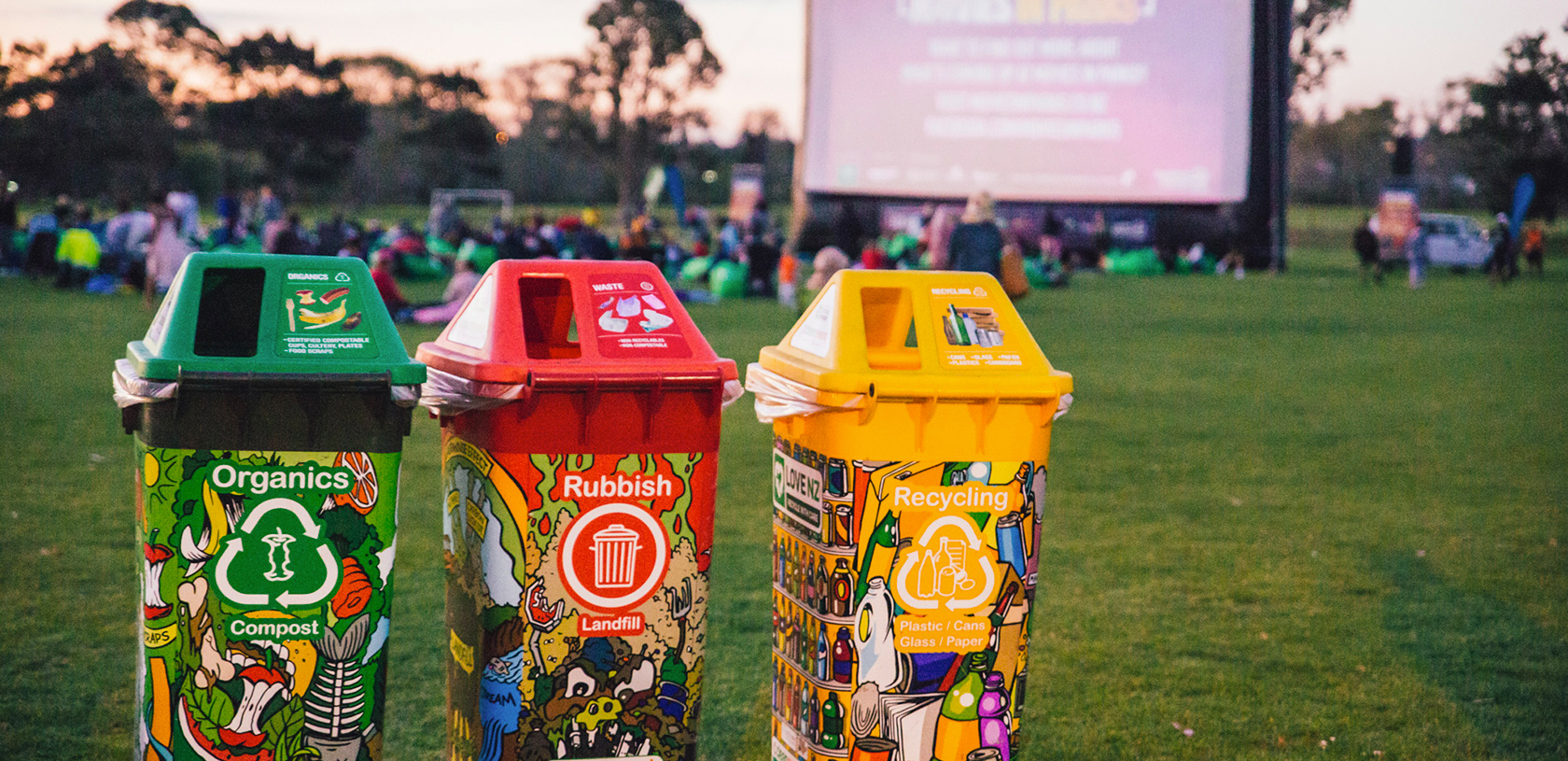case studies

ASB Polyfest 2021
- Event Type: Community
- Description: ASB Polyfest is the world’s largest Māori & Pacific Islands Festival which historically has hosted up to 100,000 visitors over the four-day festival. The Festival usually attracts 75 groups from secondary schools all over Tāmaki Makaurau to showcase their culture through dance, song and wear. A much smaller attended Polyfest 2021 took place following previous cancellations due to the Christchurch tragedy 2019 and the ongoing COVID-19 global pandemic response.
- Size: 30,000+
- Location: Manukau Sports Bowl
- Waste Separation: Compostables, Recycling, Landfill Bins
How we did:
1 Reduce incoming waste
ASB Polyfest continued to strengthen its commitment towards a Zero Waste Polyfest by reengaging Para Kore ki Tāmaki and Pacific Vision Aotearoa (PVA) to deliver its Waste Management. Critical to their success in increasing waste diverted to landfill was the Festival’s support of their 2019 recommendations. These included communication of the Zero Waste kaupapa expected of all food stallholders, the requirement for 100% compostable packaging and utensils and the signing of a “Caring for Creation” $250 vendor bond which further incentivised stallholders to use compostable packaging. The stallholders were specified a ‘by end of day’ time for delivering sorted rubbish to the Para Kore monitored skip bins. Potential landfill waste was firstly minimised at the food vendor level as part of their Festival packaging purchases. Onsite, all consumer waste was sorted at monitored bin stations around the extensive grounds. Event attendees also visited Pacific Vision Aotearoa’s “Caring for Creation” tent, dedicated to the various ways one can be good kaitiaki with growing, waste reduction and reuse messaging, plastic bottle alternatives and cycle-powered activities.
2 Choose the right bin
Stallholders were asked to sort their waste which was then brought to huge skip bins separated in the matching categories of Landfill, Recycling and Compostables. Event attendees were also engaged by Para Kore ki Tāmaki staff one-to-one at each waste station which were also separated in the same three categories of Landfill, Recycling and Compostables.
3 Let people know
Despite all the disruptions, uncertainty and late planning caused by Covid, the ASB Polyfest organisers were able to communicate to all food stallholders and enforce the ‘Caring for Creation’ Vendor agreement. Para kore ki Tāmaki were the key Waste Management contractor managing all facets of staffing, waste sorting and collection. They also contracted Envirowaste as their large volume waste manager. Staff were paid the living wage to monitor waste stations and the large stage gantry bins, and rove as event sweepers. Through this kaupapa aligned collaborative effort the waste diversion rate was 78%, (an increase from 2019 at 64%). The total weight of waste produced at the event was 15.96 tonnes, with the majority of this being made up of compostable resources. PVA were responsible for providing stallholder support to ensure the return of bond. PVA devised a rating system across the 86 stallholders to create a simple pathway to zero waste success. The final ratings across the 86 Vendors were 9 Platinum, 15 Gold, 40 Silber, 6 Bronze/Silver and 16 Bronze. This has created a prototype for future vendors to move up the rankings to PLATINUM. All vendors were also advised of the future aims of ASB Polyfest to become plastic water bottle free.
4 Capture feedback
A lot of one-on-one engagement could be instigated and followed up given the recurring nature of the 4-day Festival.
Key Messages:
- Incentivise everyone – event attendees and vendors!
- Paid event staff at the Living Wage minimum
- Sort sort sort your waste, but ideally don’t bring it in in the first place.
Key Learnings:
- This event was highly successful because of the strong relationship between waste management providers
- Virtually all good vendors were well aware of the zero waste journey and virtually all compliant with the kaupapa
- Many of the corporate vendors were unaware of the Zero Waste kaupapa and appreciated advice on how their popular giveaways could be more zero waste. This is the key area for events – empowering corporate sponsors to also seek zero waste alternatives from their suppliers, eg request items are not individually plastic wrapped (individually wrapped pens), finding alternative recyclable or reusable materials (cardboard ili -fans, not plastic), offering giveaways that are made to last (1 ili design was so flimsy they were often found broken).
- Celebrate those ‘Platinum’ vendors and ZW champions – one vendor offered fruit as their giveaway, another secured plant PLA to wrap their lolly giveaways.






